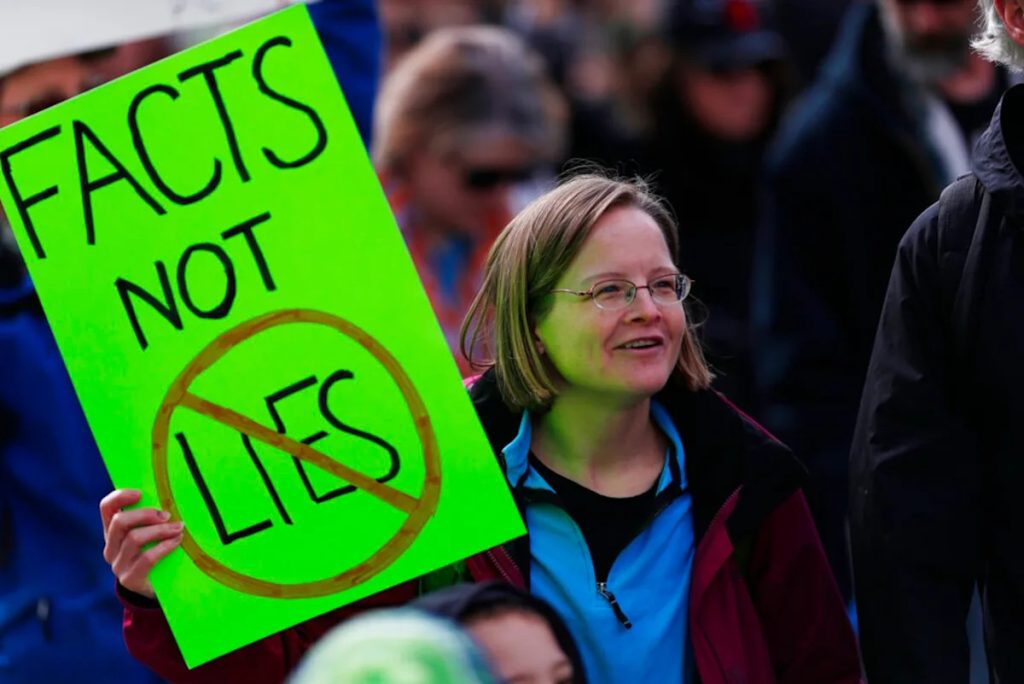Listen to the article
In an era dominated by artificial intelligence and “fake news,” many Americans struggle to understand the boundaries of free speech protection under the First Amendment, particularly when it comes to falsehoods and misinformation. Recent surveys reveal a concerning knowledge gap about constitutional protections at a time when digital manipulation technology continues to advance.
According to the Freedom Forum’s latest annual survey, only 10% of Americans could name all five freedoms protected by the First Amendment without prompting. This lack of constitutional literacy comes at a critical moment when differentiating between protected speech and illegal communication has never been more complex.
The survey poses challenging questions for the average citizen: Does the First Amendment protect deepfake videos featuring celebrities? Can someone face legal consequences for unknowingly spreading false information online? What about deliberately distributing falsehoods about the government across social media platforms?
The answers to these questions often surprise Americans who may not fully grasp the nuanced legal framework surrounding free speech protections. While the First Amendment offers broad protections for expression, certain categories of speech—including defamation, fraud, and true threats—remain outside constitutional safeguards.
Political implications of this knowledge gap are significant. The “Where America Stands” survey found that 56% of respondents indicated concerns about the First Amendment would influence their voting decisions ahead of the November 2024 election. Perhaps most troubling, researchers discovered that younger Americans demonstrated the least understanding of First Amendment principles, suggesting a generational decline in civic education.
This knowledge deficit comes at a particularly dangerous moment. The proliferation of sophisticated AI tools capable of creating convincing fake videos, images, and text has dramatically increased the volume and believability of misinformation. Without a solid understanding of constitutional protections and limitations, Americans may struggle to navigate this complex information landscape responsibly.
To address this educational need, the Freedom Forum has launched the First Amendment Academy, a collaborative effort with Arizona State University and NEWSWELL. The Academy offers interactive courses and weekly quizzes designed to help Americans explore how First Amendment rights affect their daily lives.
“Understanding the boundaries of free speech is essential for responsible citizenship,” said Gene Policinski, Freedom Forum senior fellow, in a recent interview. “Many Americans mistakenly believe all speech receives equal protection, when in reality, the courts have identified specific categories that fall outside First Amendment safeguards.”
Legal experts note that the digital age has created unprecedented challenges for applying First Amendment principles. “The framers of the Constitution couldn’t have envisioned a world where AI could create perfect imitations of real people saying things they never said,” explained constitutional law professor Amanda Rodriguez at Georgetown University. “Our legal framework is constantly evolving to address these new realities.”
Media literacy advocates emphasize that constitutional understanding must be paired with critical thinking skills. As misinformation continues to flood social media platforms, the ability to evaluate sources and question content becomes as important as knowing legal boundaries.
The First Amendment Academy’s educational initiative comes amid growing concerns about the impact of misinformation on democratic processes. Their weekly quizzes and interactive courses aim to bridge the knowledge gap by making complex constitutional concepts accessible to everyday Americans.
As the 2024 election approaches, the Freedom Forum plans to release weekly constitutional literacy quizzes covering various aspects of First Amendment protections, with a particular focus on misinformation, political speech, and religious freedoms—topics directly relevant to current political discourse.
The nonpartisan organization hopes these educational efforts will contribute to a more informed electorate capable of distinguishing between protected expression and harmful communication that falls outside constitutional safeguards.
Fact Checker
Verify the accuracy of this article using The Disinformation Commission analysis and real-time sources.




7 Comments
Thought-provoking piece. The tension between free speech and misinformation is an enduring challenge, made even more complex by technological advancements. This is an important debate that will continue to shape our democratic discourse.
Fascinating topic. While the First Amendment is a cornerstone of democracy, the rapid spread of misinformation online raises tough questions. Navigating this landscape requires nuance and an understanding of evolving legal frameworks.
Agreed. Distinguishing between protected speech and harmful falsehoods is tricky but crucial. Educating the public on these issues could help people make more informed decisions.
This is a complex issue without easy answers. The First Amendment offers broad protections, but misinformation can still have real consequences. Balancing free speech and accountability will be an ongoing challenge in the digital age.
This is a timely and important discussion. The line between free speech and misinformation is often blurry, especially with new technology. I’m curious to see how the courts and policymakers approach this challenge going forward.
An interesting and complex dilemma. The First Amendment is a cornerstone of our democracy, but the rampant spread of misinformation online raises serious concerns. Striking the right balance will be critical as this issue evolves.
Absolutely. There are no easy answers, but fostering media literacy and digital citizenship could help equip the public to navigate this landscape more effectively.